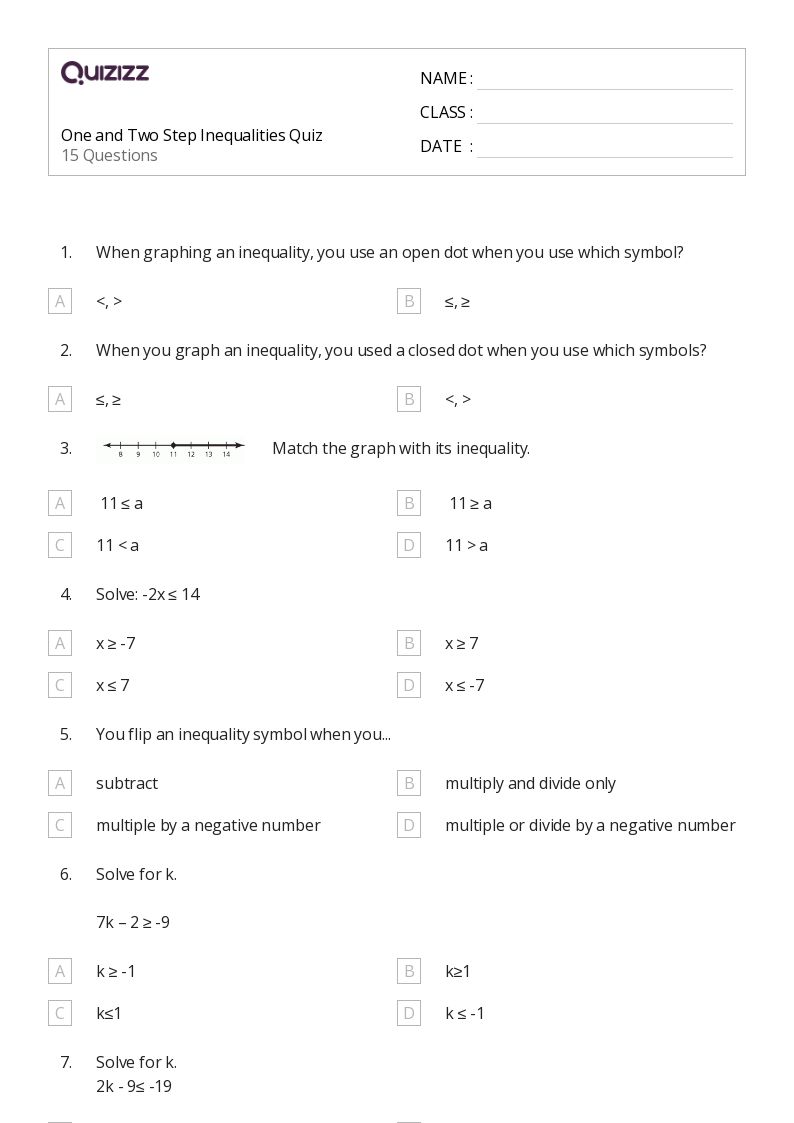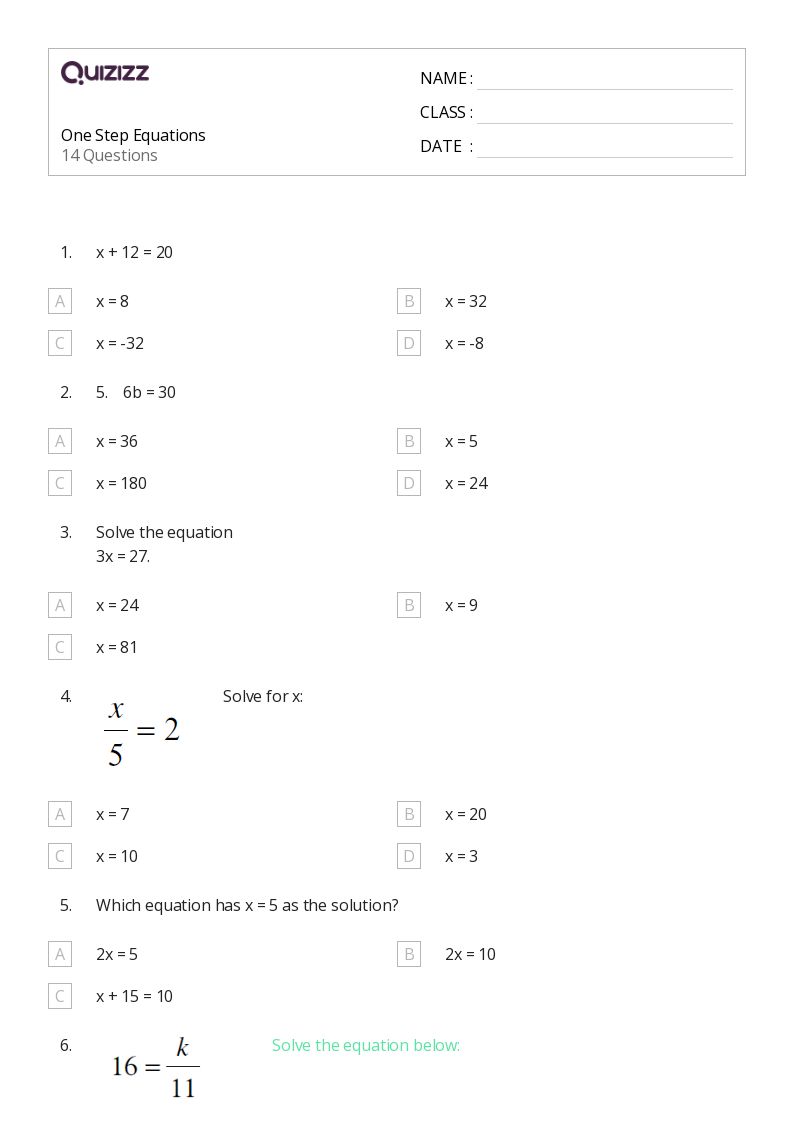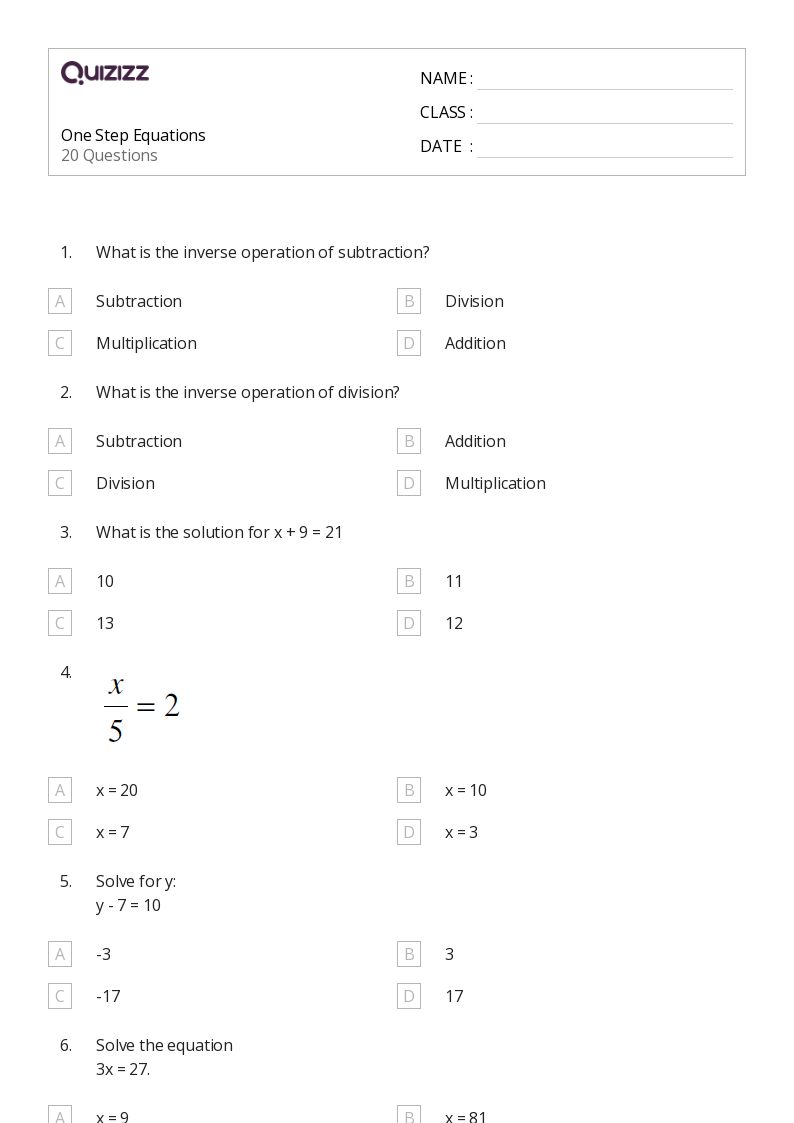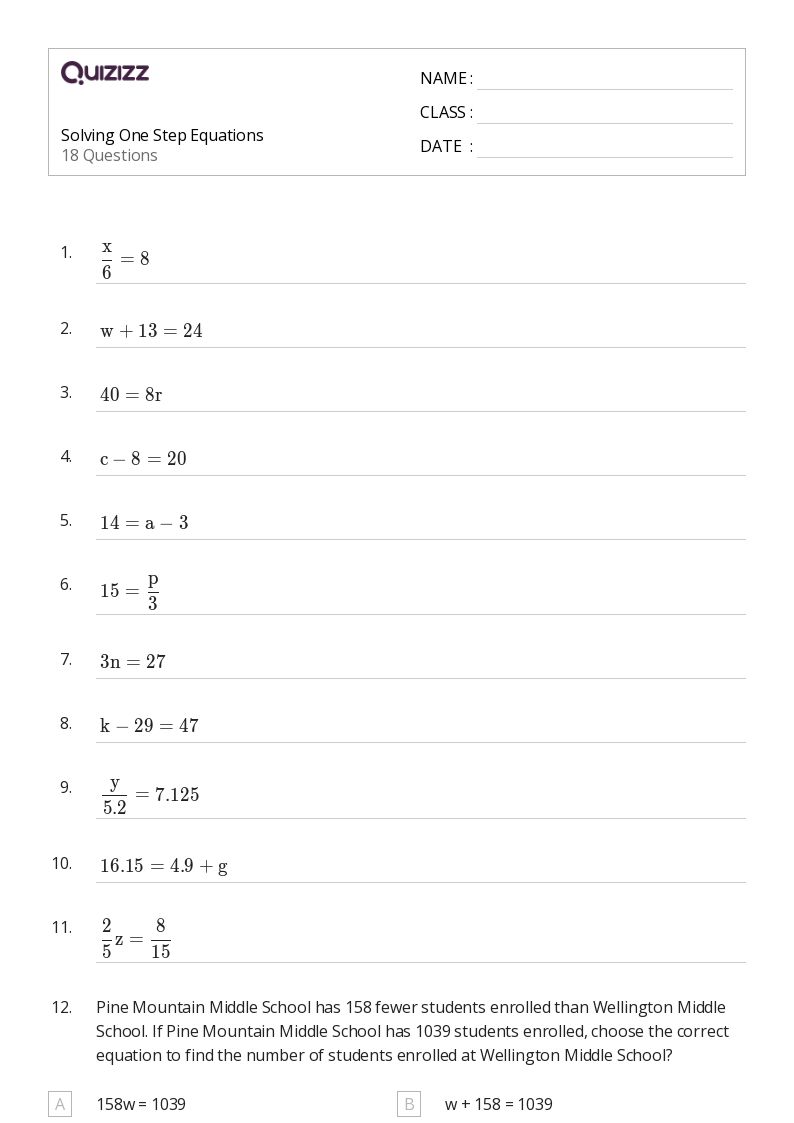
15 Q
5th - 10th

14 Q
5th - 7th

15 Q
5th - 8th

22 Q
5th - 9th

20 Q
5th - 7th

15 Q
5th - 10th

41 Q
5th - 6th

33 Q
5th - 7th

15 Q
5th - 6th

21 Q
5th - 10th

18 Q
5th - 8th

10 Q
5th - 7th

20 Q
6th - 5th

15 Q
5th - 7th

20 Q
5th - 7th

10 Q
5th - 6th

5 Q
5th - 8th

45 Q
5th - 7th

8 Q
5th

14 Q
5th - 8th

10 Q
5th - 9th

10 Q
4th - 5th
Explore One-Step Inequalities Worksheets by Grades
Explore Other Subject Worksheets for class 5
Explore printable One-Step Inequalities worksheets for 5th Class
One-Step Inequalities worksheets for Class 5 are essential tools for teachers who want to help their students build a strong foundation in math, specifically in the area of algebra. These worksheets focus on teaching students how to solve inequalities, a crucial skill for understanding more advanced algebraic concepts. By incorporating One-Step Inequalities worksheets into their lesson plans, teachers can provide Class 5 students with ample opportunities to practice and master the art of solving inequalities. The worksheets are designed to be engaging and challenging, ensuring that students remain interested and motivated to learn. With a variety of problems to solve, students will be well-equipped to tackle more complex algebraic problems as they progress in their math education.
Quizizz is an excellent platform that offers a wide range of resources for teachers, including One-Step Inequalities worksheets for Class 5. This platform not only provides high-quality worksheets but also allows teachers to create interactive quizzes and games that can be used alongside the worksheets to reinforce learning. By utilizing Quizizz, teachers can easily track their students' progress in solving inequalities and identify areas where additional support may be needed. The platform also offers a wealth of other math resources, covering topics such as algebra, geometry, and more, making it a one-stop-shop for Class 5 teachers looking to enhance their students' math skills. With Quizizz, teachers can ensure that their students are well-prepared to tackle the challenges of more advanced math courses in the future.
